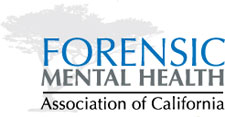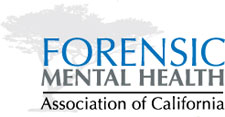The 34th Annual FMHAC Conference
March 18-20, 2009
Board of Directors Elections
President Elect: Mark Grabau, PhD
Vice President: David Meyer, JD
Treasurer: Ronald Kaufman, PsyD
Vice President: David Meyer, JD
Treasurer: Ronald Kaufman, PsyD
Award Winners
William T. Rossiter Award
- Terry Kupers, MD, MS
- Joel Fay, PsyD
Presentation Handouts
Sessions are listed in alphabetical order according to lead presenter.
Overcoming Obstacles to Sex Offender Treatment
Overcoming Obstacles to Sex Offender Treatment
- Jay Adams, PhD
- Overview and Bibliography (pdf)
- Expanding Sex Offender Treatment (pdf)
- The Neural Self, P. Rich (pdf)
- Stephen Behnke, JD, PhD
- -no handout-
- Tim Brennan, PhD
- Male Typology Descriptions (pdf)
- Measurement and Treatment Implications Adult COMPAS Scales (pdf)
- Measurement and Treatment Implications for Women (pdf)
- Christopher Ebbe, PhD, ABPP
- Bettina Hodel, PhD
- Debra Joseph, PsyD, RN
- Terry Kupers, MD
- Coping with the Long-Term Effects of Isolated Confinement (pdf)
- How to Create Madness in Prison (pdf)
- George Laird, PhD
- Thomas B. Lewis, MD
- Lyn Mangiameli, PhD
- -no handout-
- Officer Robert Martinez
- -no handout-
- Alicia Nowicki, MPA
- How to Use the NVC Process (pdf)
- Feelings (pdf)
- Needs List (pdf)
- Selected Abstracts to Support Empathy Enhancing Treatment (pdf)
- Kenneth Robinson, EdD
- Cognitive Behavioral Treatment Review, 2007 (pdf)
- MRT Review (pdf)
- Officer Thomas Sabido, MA
- Slides (pdf)
- Hoarding Alliance Resource Guide (pdf)
- Marin Hoarders Alliance Field Guide Excerpts (pdf)
- Jennifer Skeem, PhD
- Sharon Snow, PsyD, PhD
- -no handouts-
- Michael H. Stone, MD
- James Telander, PsyD
- Ralph Zaccheo, MS, MBA
- -no handouts-
REFERENCES
2009 CORPORATE MEMBERS
- Eli Lilly & Company
2009 SUSTAINING MEMBERS
- Gil Abdalian, MFT
- Pat Butler, RN
- Kenneth Carabello, LCSW
- Mark Duarte, LCSW
- David Ezra, MFT
- Joel Fay, PsyD
- Harry Goldberg, PhD
- Mark Grabau, PhD
- Thomas Granucci, LCSW
- Carrie Gustafson
- Greg Horn, MSW
- Peter Kalmar, MFT
- Barclay Kenyon, MFT
- Robert Leark, PhD
- Alice Lebron, LCSW
- Joseph Lockhart, PhD
- Gilbert McFarlane, PhD
- David Polak, LCSW
- Neil Ross, MA
- Jennifer Rossi, MFT
- John Schipper, PhD
- Munir Sewani, PhD
- Angela Shannon, MD
CONTINUING EDUCATION
Board of Behavioral Science Examiners (CEUs)
Board of Registered Nursing (CEUs)
FMHAC is an approved provider of CEUs through the BBSE (PCE 480) and the BRN (CEP 5965). 13 CEUs available in 2009
Detail:
3 CEUs Wednesday Pre-conference
1 CEU Keynote
1.5 CEUs for each workshop on 2nd day
3 CEUs Wrap-up
Board of Psychology (MCEPs)
This year we have been approved for 13 credits, course code FOR005-0069-000, as detailed here:
3 CEUs Wednesday Pre-conference
1 CEU Keynote
1.5 CEUs for each workshop on 2nd day
3 CEUs Wrap-up
Peace Officer Standards and Training (POSTs)
POST credits have been approved, POST #2270-28000-08.
Board of Corrections (STCs)
For Standards and Training for Corrections (STC) participants who need STC training credit for this event, please apply for Special Certification through your STC training manager/coordinator.
As this year's STC certification procedure for the FMHAC conference is a little different, please be aware that this is only a procedural change and should have no effect on the certification of workshops at the conference. In fact, it will allow more flexibility for attendees.
The process for a Special Certification is as follows:
Board of Registered Nursing (CEUs)
FMHAC is an approved provider of CEUs through the BBSE (PCE 480) and the BRN (CEP 5965). 13 CEUs available in 2009
Detail:
3 CEUs Wednesday Pre-conference
1 CEU Keynote
1.5 CEUs for each workshop on 2nd day
3 CEUs Wrap-up
Board of Psychology (MCEPs)
This year we have been approved for 13 credits, course code FOR005-0069-000, as detailed here:
3 CEUs Wednesday Pre-conference
1 CEU Keynote
1.5 CEUs for each workshop on 2nd day
3 CEUs Wrap-up
Peace Officer Standards and Training (POSTs)
POST credits have been approved, POST #2270-28000-08.
Board of Corrections (STCs)
For Standards and Training for Corrections (STC) participants who need STC training credit for this event, please apply for Special Certification through your STC training manager/coordinator.
As this year's STC certification procedure for the FMHAC conference is a little different, please be aware that this is only a procedural change and should have no effect on the certification of workshops at the conference. In fact, it will allow more flexibility for attendees.
The process for a Special Certification is as follows:
- Inform your training manager that you will be attending this conference and you will be asking for a Special Certification.
- Upon returning from the conference, inform your training manager how many hours you attended and ask them to submit a Special Certification for those hours.

